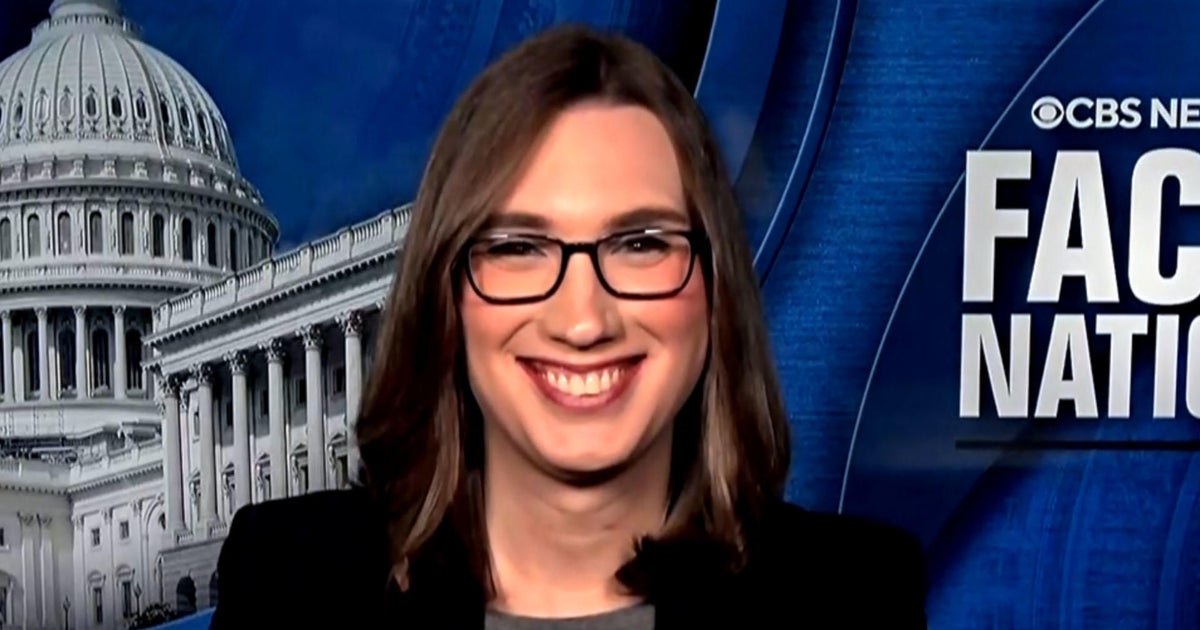CBS News
Is your credit card maxed out? 4 options to consider

Getty Images
Credit card delinquencies have been on the rise, with recent data showing that delinquent credit card accounts climbed to nearly 9% in the first quarter of 2024. And, many cardholders are also facing issues with maxed-out credit cards — another sign that borrowers are grappling with financial difficulties in today’s economic climate. That makes sense considering the current challenges, which include persistent inflation that is hovering at 3.4% and credit card rates that are sitting above 21% on average.
Being delinquent on credit card payments or having maxed-out credit cards can have severe consequences, such as damage to your credit score, accumulation of fees and penalties and potential legal action from creditors. Moreover, it can create a vicious cycle of compounding debt, making it even more difficult to regain financial stability. So, if you find yourself behind on your credit card payments and your credit cards are maxed out, it is crucial to address the issue promptly to avoid further complications.
How exactly can you do that, though? Well, borrowers have quite a few options when it comes to credit card debt relief. And, if you want to settle your maxed out or delinquent credit card debt, meaning that you agree to pay less than the total balance of what you owe, there are a few strategies in particular that may be worth considering.
Don’t wait any longer. Start exploring your credit card debt relief options now.
Is your credit card maxed out? 4 options to consider
If you need to find a route to credit card debt settlement, you may want to weigh the following options:
Enroll in a debt settlement program
One option to consider is enrolling in a debt settlement program through a debt relief company or service. When you enroll in this type of program, the experts will work with the credit card companies you owe money to in order to negotiate lump-sum payments that are lower than the total amount owed. This allows you to settle your credit card debt for less than you owe on the full balance, with a portion of your full balance being “forgiven” by your lender.
While this approach may initially have a negative impact on your credit score, it can provide significant relief by reducing the overall debt burden. And, while debt settlement companies typically charge a fee for their services, the potential savings can outweigh the costs for those struggling with overwhelming debt.
It’s important to know, though, that the forgiven portion of your credit card debt is considered taxable income by the IRS. In turn, you may owe income tax on that amount once the process is complete.
Find out what debt relief options are available to help you here.
Tackle debt settlement negotiations yourself
If you prefer a more hands-on approach, or if you want to avoid the fees charged by debt relief services, you also have the option to negotiate debt settlements directly with your creditors. This process involves contacting each creditor individually and proposing a lump-sum payment that is lower than the total amount owed. If the lenders agree to the settlements, you pay the agreed-upon amount in full to settle the debt, and the rest is written off by the lender.
If you’re going to take this route, it is important to be prepared with a detailed financial overview and a compelling explanation for your circumstances. After all, credit card companies typically want to verify that you’re unable to pay the full balance of what you owe due to financial hardship, so the more documentation you can provide, the more likely you’ll be successful in your negotiations.
You’ll still owe income tax on the forgiven portion of your debt, of course, just like you would if your debts were settled through a debt settlement program. But while you may owe some extra income tax next April, and while self-negotiation can be challenging, it can save you from the fees associated with debt settlement companies and cut down on your credit card debt.
Utilize a credit card hardship program
Many credit card issuers will also offer credit card hardship programs that are designed to assist customers facing temporary financial difficulties. These programs may provide relief through measures such as reduced interest rates, waived fees or temporary payment reductions.
You should understand, though, that a hardship program will not settle your debt. It only provides temporary relief in the form of lower payments or reduced rates and fees. That said, enrolling in this type of program can still make your credit card payments more manageable and provide breathing room until your financial situation improves.
Consider bankruptcy as a last option
If your debt has become overwhelmingly burdensome and all other options have been exhausted, filing for bankruptcy may be a viable last resort. While bankruptcy should be approached with caution due to its long-lasting impact on your credit score and financial standing, it can offer a fresh start by discharging eligible debts. If you’re going to use this strategy, though, it is crucial to consult with a qualified bankruptcy attorney to understand the implications and eligibility requirements beforehand.
How to choose the right debt settlement option for you
Selecting the most suitable debt settlement option requires careful consideration of your specific circumstances. Begin by evaluating your current financial situation, including your income, expenses and the total amount of debt owed. If you’re going to take a DIY approach, you should also assess your ability to make lump-sum payments or negotiate directly with creditors. If you lack the time or negotiation skills, enrolling in a debt settlement program may be more beneficial, despite the associated fees.
And, as you weigh your options, you should also consider the potential impact each one may have on your credit score and future borrowing opportunities. While debt settlement programs and bankruptcy can have negative consequences, especially during the early part of the process, they may be necessary if your debt is overwhelming and unsustainable.
The bottom line
Navigating credit card delinquency or maxed-out credit cards can be a daunting challenge, but addressing your delinquent credit card debt promptly is crucial to regaining control over your finances and securing a brighter financial future. And, while being in credit card debt may feel overwhelming, the good news is that you have lots of potential strategies and solutions to consider. Just be sure to carefully evaluate your circumstances and explore all of your available options before making a decision.
CBS News
Sen. Van Hollen says Biden is “not fully complying with American law” on Israeli arms shipments

Watch CBS News
Be the first to know
Get browser notifications for breaking news, live events, and exclusive reporting.
CBS News
Rep.-elect Sarah McBride says “I didn’t run” for Congrees “to talk about what bathroom I use”

Watch CBS News
Be the first to know
Get browser notifications for breaking news, live events, and exclusive reporting.
CBS News
11/24: Face the Nation – CBS News

Watch CBS News
Be the first to know
Get browser notifications for breaking news, live events, and exclusive reporting.



